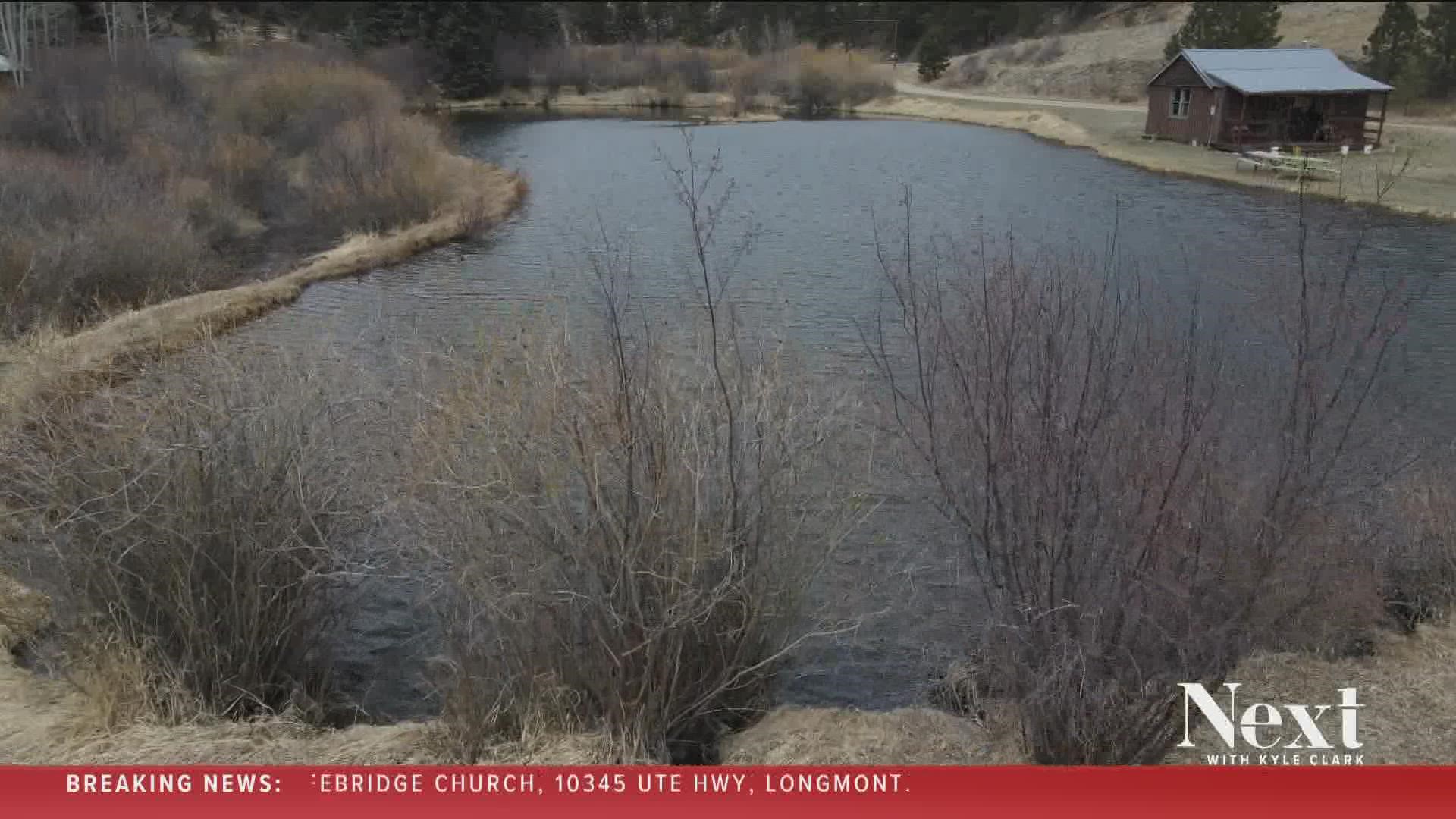BAILEY, Colo. — Two impacts of Colorado’s changing climate are colliding in Colorado’s high country: a growing number of destructive wildfires and the scarcity of water.
Now, state legislators are working on a bill that would protect private ponds used by firefighters as water sources, as the state engineer cracks down on private ponds that store water meant to travel to downstream users who have water rights.
Ben Mulligan, the fire chief of the Platte Canyon Fire Protection District, said he first started to notice local ponds drying up long before he was fire chief. As he was promoted, he learned many of those ponds that his department used to draft water into trucks to fight fires in hard to reach places had been drained as they violated Colorado’s water law.
“We have to truck all of our water in with us, we don’t have hydrant systems,” Mulligan said. “So what the ponds mean to us, that’s our water source.”
“We probably use our water sites on average a monthly basis.”
The issue has to do with Colorado’s complex water laws that date back long before achieving statehood. Downstream users who have established seniority technically have rights to the water.
“Water as you know is a scarce resource and in the arid west is more scarce than in other areas,” said Dick Brown, a lobbyist who represents several Colorado water districts as state lawmakers negotiate this new bill.
“[Rainfall] is not the bounty of nature. That water is that comes from that is already spoken for in the legal system.”
The bill, which passed the state senate and is working its way through the state house, would allow county commissioners to petition the state engineer to establish protections for ponds used by fire protection districts. The ponds would have to meet a certain criteria. For example, a fire pond couldn’t be bigger than 6 acres in size and had to be built before 1972.
Brown said none of his client water districts dispute the need for the ponds to help fight wildland fires. But one client, the Upper Arkansas Water Conservation District, is concerned about potential precedent set by the legislation.
“It is inconsistent with the way we have applied water law under a variety of Supreme Court decisions for more than a century,” Brown said.
The concern, he said, is the bill changes the burden of proof for disputes over water rights cases involving these fire ponds. Brown said his interpretation of the bill’s current language would require water users to prove that their water right is violated by the pond. Current procedure would require the entity taking the water to prove their use of the water is not disrupting downstream users’ rights.
“Remember a water right is a property right,” he said. “So you can’t just willy-nilly decide that you’re going to take that property away from somebody else for even the most laudable goal you can think of.”
Brown said the Upper Arkansas Water Conservation District would like to see counties augment the water system if they maintain these ponds for firefighting. Augmentation involves buying water rights from elsewhere and putting the amount of water lost by the ponds back into the water system for downstream users to use.
“You’re preventing that water from getting to the senior water rights holders or to the stream itself where it would be available for other people to appropriate to beneficial use,” he said.
Brown said he is working with proponents of the bill to improve its language and is confident there will be some kind of agreement before the end of session.
SUGGESTED VIDEOS: Full Episodes of Next with Kyle Clark

